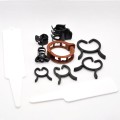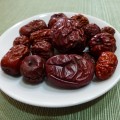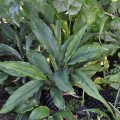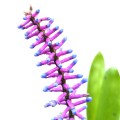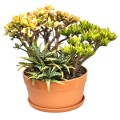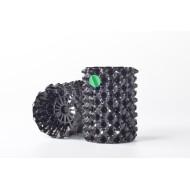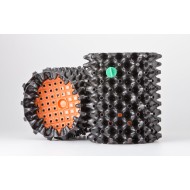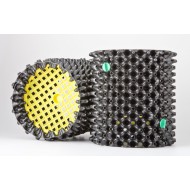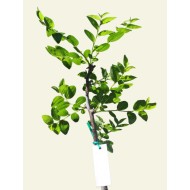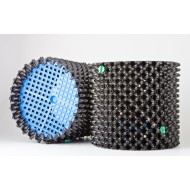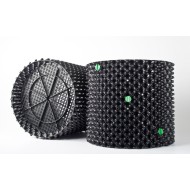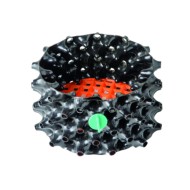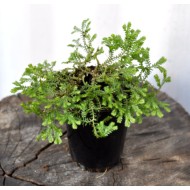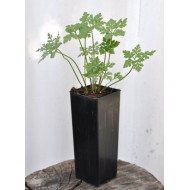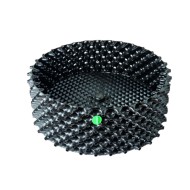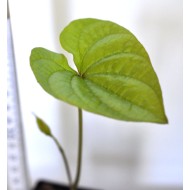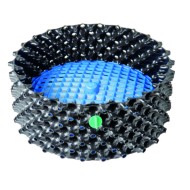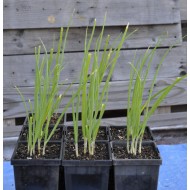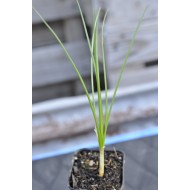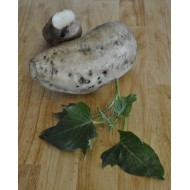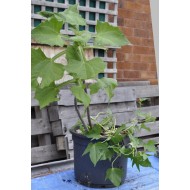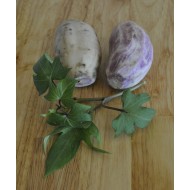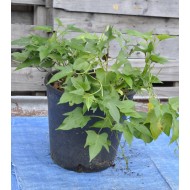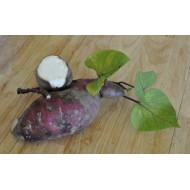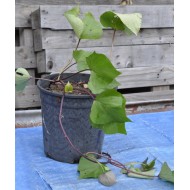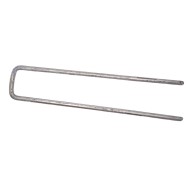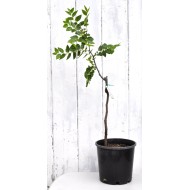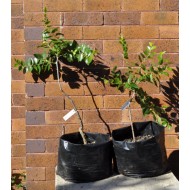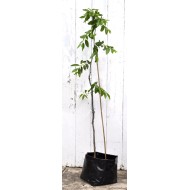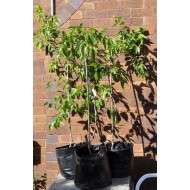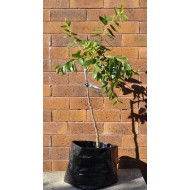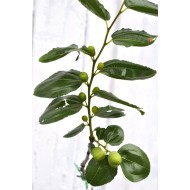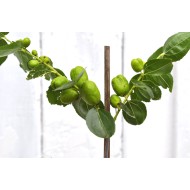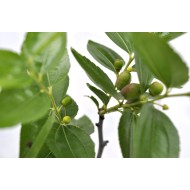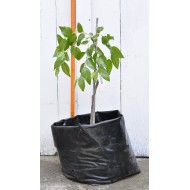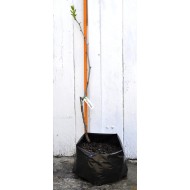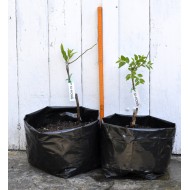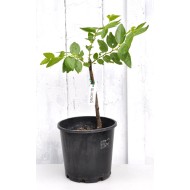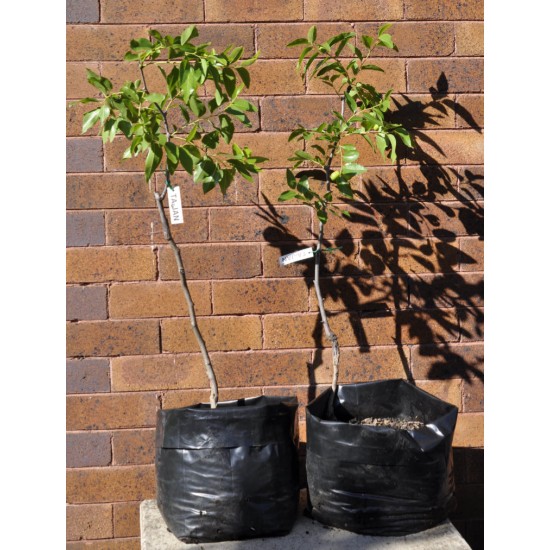
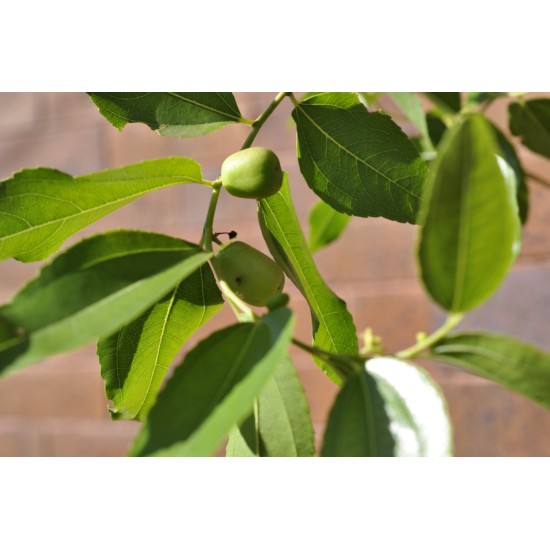


- Stock: In Stock
- Model: jujube-Ta-Jan-potted-2023-polybag-tall
Family: Rhamnaceae (includes buckthorns; Rhamnaceae is also known as the buckthorn family)
Genus: Ziziphus (includes Indian Ber)
Botanical/Binomial Name: Ziziphus jujuba Mill.
Meaning of Name:
Ziziphus, from Latin zīziphum, form Ancient Greek ζίζυφον (zízuphon): denoting the fruit; and
jujuba, from Mediaeval Latin jujuba (feminine singular of jujube): denoting the tree or fruit; and
Mill., abbreviated author citation for Philip Miller (1691–1771), Scottish botanist
Common Names: Jujube, Chinese Jujube, Chinese Date, Red Date, Chinese Red Date
Cultivar: Ta-Jan
Botanical Characteristics: Woody | Perennial | Deciduous | Frost hardy
Item Description:
These trees are end of season (no flowers or fruit).
Each tree is in a 25 litre black poly planter bag of 300 mm diameter.
Height is about 1000 mm including bag.
These trees always look bottom-heavy, off-centre and over-potted in these bags, as this is the way they grow. A tall slender trunk with a mass of thick, sprawling roots is very typical for this age.
If I potted these into a bag more matched in size to the trunk I would have to trim at least 50% of the roots.
The shape and sprawl of the roots is the only reason these trees are off-centre in the bags.
Now that these are flowering I strongly recommend leaving these in the bags until next winter when they become dormant. There is a risk of transplant shock from root disturbance otherwise.
Take advantage of this — being in a bag makes them mobile and gives you time to determine the best final position for your tree!
When planting, leave the tree in the bag as a guide as to how deep to dig your hole or how deep to add a good quality potting mix to your permanent pot. Position the tree in place, still in the bag, then cut the plastic away gently down the sides and slide out from under the root ball. Ideally one person should position and straighten the tree while another back fills and packs the soil tightly around the roots. Water in deeply.
If you are planting into the ground next year, prepare your hole now. Dig a hole at least 600 mm diameter and 500 mm diameter deep. Mix this soil with plenty of organic matter (compost), refill the hole, and pile the excess soil in a mound on top. The mound will slowly sink with time as the organic matter breaks down and everything settles. Repeat every few months, and you will have an open, rich planting medium ready for your tree. Your tree is ready to plant in winter when it has shed all its leaves and is well and truly dormant.
Description of Fruit:
Ta-Jan is a large pear-shaped fruit similar to Lang.
Mid to late-season ripening.
Fairly good for fresh eating if fully red/brown, but is best dried. Very good for processing.
Description of Tree:
(The following information is from The Biosphere Blog on our sister site The Jujube Tree Nursery. More information can be found here and here.)
The jujube tree is deciduous. It can grow to 10 m high by 6 m wide, but keeping pruned to a height of 3–5 m makes management and harvesting easier.
It is native to climates with a yearly temperature range from around -5°C to 50°C, but can survive winters that get down to -30°C.
While growth in areas with cool summers can be very slow, the tree thrives in hot, dry environments with long summers and warm nights. Heat is crucial for flower production and fruit development, and jujubes require a range of at least 20°C to 25°C during the flowering stage for fruit to set. Unlike most fruit trees, jujubes have a very long period of flowering, often over a few months. If temperatures are too cool for the first flush of flowers to set fruit, later flowers usually will as the weather warms.
While summers can’t be hot enough, the tree does need around 200-400 hours of exposure to temperatures below 7°C over winter during dormancy. This is called its chilling requirement, and ensures vernalisation (the induction of the flowering process) occurs in spring.
Jujube trees flower later than other fruit trees, from November on, and are thus unaffected by late frosts that can devastate other fruit crops.
They can grow in a range of soils from acid to alkaline, but prefer deep and well-drained soils.
The rootstock will sucker, but easily kept under control with secateurs or even a lawn mower.
Local pick-up is welcome — we’re in Gwynneville, near Wollongong University.
Pick-up is by mutual arrangement please, as we don’t have a shopfront.
Having said that, we are always here and more often than not can easily fit in with whichever day and time suits you best!
Feel free to suggest preferred pick-up time(s) in the comments box during checkout and we’ll reply as soon as we see the notification.
Especial Note Regarding Large Air-Pot® Orders
Depending on the order, we may suggest that large Air-Pot® orders are best sent directly to you from the warehouse.
Especial Note Regarding Jujube Trees
When posting out bare-rooted jujube trees, we routinely trim them to fit the box and keep postage costs to a minimum. These trees are typically knee-high when planted out, though some may be smaller.
This of course doesn’t apply for pick-ups, and in fact we will set aside the tallest trees specifically for this purpose. These trees can often be hip-high, and sometimes taller again.
Please note that this is not a guarantee, as heights of different cultivars can differ from year to year.

